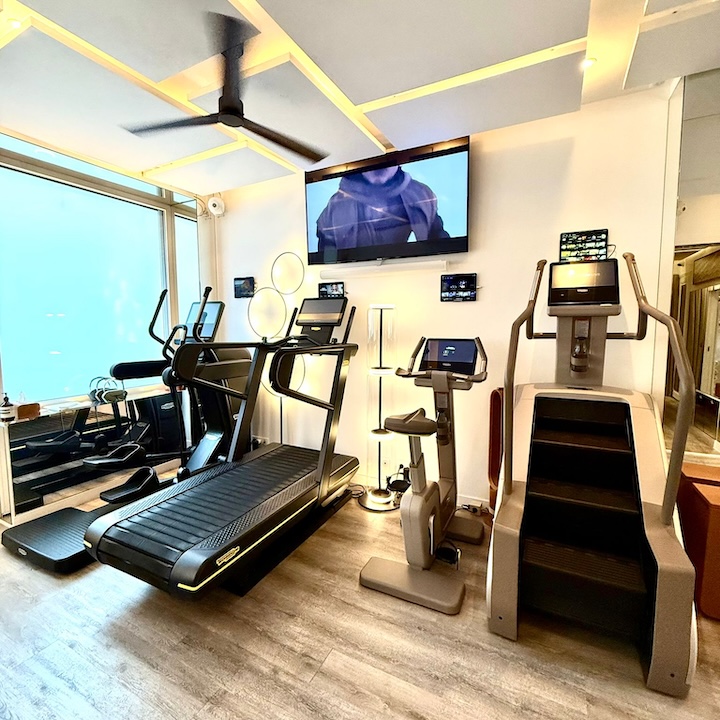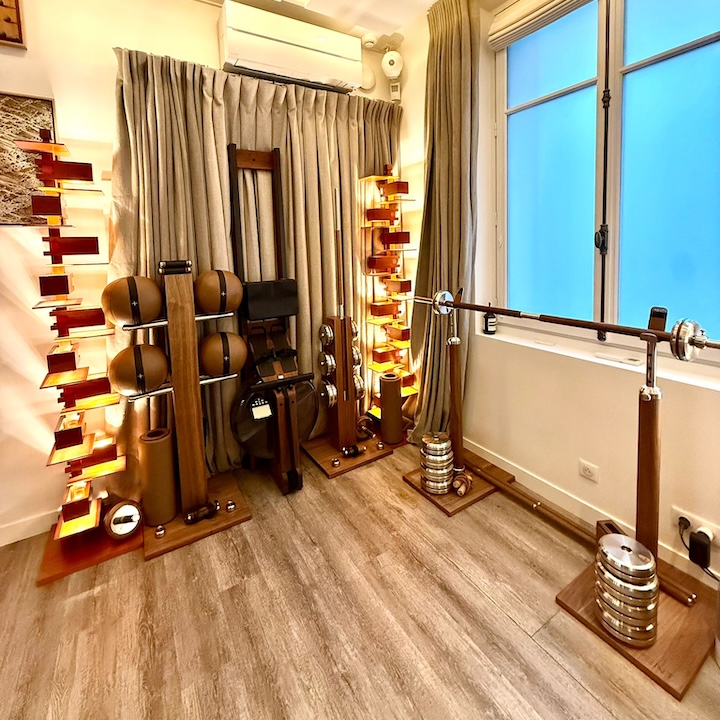Tendinitis: Causes, Prevention, and Recovery with Louis Fabre Coaching
Tendinitis is a frequent injury that many athletes and fitness enthusiasts encounter during their training. This condition occurs when tendons—the fibrous tissues that connect muscle to bone—become inflamed or irritated, typically due to repetitive movements, overuse, or sudden increases in physical activity. At Louis Fabre Coaching, we emphasize not only effective training techniques but also comprehensive injury prevention and recovery strategies. By understanding tendinitis, how to prevent it, and the steps to recovery, you can stay on track with your fitness goals while minimizing the risk of long-term damage.
Tendinitis can develop from a range of factors, including poor exercise technique, insufficient warm-up, or pushing your body too hard too quickly. That's why our approach focuses on proper form, a gradual increase in training intensity, and integrating recovery practices to ensure your tendons remain healthy and resilient. Prevention is key, and through personalized training plans, we help you avoid unnecessary strain and keep progressing safely.

What Causes Tendinitis?
Tendinitis typically develops from repetitive stress placed on tendons during physical activity. When the same movement is repeated over and over, tendons can become overworked and inflamed. This constant strain prevents the tendons from recovering properly, leading to irritation. Over time, the lack of adequate rest or improper technique can exacerbate the inflammation, resulting in more severe pain or long-term injury if left untreated.
Some of the key causes include:
- Overuse: Activities like running, weightlifting, tennis, and other repetitive sports can overstress the tendons, especially without proper warm-up or technique.
- Poor Technique: Improper posture or form during exercise can lead to uneven distribution of stress on the tendons, increasing the risk of injury.
- Age: Tendons naturally lose elasticity over time, making them more prone to injury as we age, especially in adults over 40.
- Sudden Increase in Activity: Rapidly increasing the intensity or volume of workouts without gradual progression can overwhelm the tendons, leading to inflammation.

Common Types of Tendinitis
Tendinitis can affect any tendon in the body, but the most common areas include:
- Achilles Tendinitis: Common in runners, affecting the tendon at the back of the ankle.
- Tennis Elbow (Lateral Epicondylitis): Often seen in tennis players or those who frequently use gripping motions.
- Rotator Cuff Tendinitis: Common in swimmers or those who perform repetitive overhead movements.
- Patellar Tendinitis (Jumper’s Knee): Frequently experienced by athletes who jump often, such as basketball or volleyball players.

Preventing Tendinitis with Louis Fabre Coaching
Prevention is key to avoiding tendinitis, and at Louis Fabre Coaching, we implement strategies to minimize the risk of tendon injury. Here’s how we approach it:
- Proper Technique and Form: One of the primary causes of tendinitis is poor technique. That’s why I emphasize the importance of correct form during every session. Whether you’re lifting weights or running, maintaining the right posture ensures that tendons are not overloaded.
- Warm-Up and Stretching: I always begin with a thorough warm-up, focusing on dynamic movements and stretches to prepare the muscles and tendons for the workout. Stretching improves flexibility, which can reduce the risk of tendinitis.
- Progressive Training Plans: Tendons need time to adapt to increased activity. My training programs are built with gradual progression in mind, allowing your body to strengthen without overstressing tendons.
- Cross-Training: Repeating the same exercises can strain the same tendons repeatedly. Incorporating different types of workouts, like swimming or cycling, helps reduce the repetitive stress on specific tendons.

Recovery
At Louis Fabre Coaching, recovery is as important as training itself, and we take a holistic approach to ensure that our clients can heal, recharge, and maintain peak performance. Proper recovery practices are crucial for preventing injuries, reducing muscle soreness, and allowing the body to repair and rebuild stronger. We work closely with our clients to tailor personalized recovery plans that fit their individual needs, especially when dealing with conditions like tendinitis. Recovery methods such as stretching, mobility work, and active recovery exercises are integrated into every training program. These practices help improve circulation, promote muscle relaxation, and reduce the inflammation that often leads to long-term issues. In addition, we emphasize the importance of proper hydration, nutrition, and rest—critical components of recovery that ensure the body is well-equipped to handle the physical demands of training. By incorporating these strategies, our clients can continue their fitness journey while minimizing the risk of further strain or injury.
Theragun Pro: A Revolution in Muscle Recovery
After an intense workout session, the Theragun Pro becomes your best ally. This percussion therapy device is designed to deeply relieve muscle pain and enhance recovery. Its advanced technology targets deep tissues, helping to alleviate discomfort and prevent further injury. By incorporating Theragun Pro into your recovery routine, you’re able to reduce muscle tension, improve circulation, and be fully prepared for your next session without any lingering pain. This tool is a game-changer for those suffering from tendinitis, helping to ease the inflammation in the affected tendons.
At Louis Fabre Coaching, the recovery process goes beyond just using tools like the Theragun Pro. I offer a comprehensive range of recovery techniques to ensure that every client’s body is given the attention it needs after intense workouts or when dealing with issues like tendinitis. Specific massage techniques are employed to target muscle knots and tension, helping to relieve deep-seated discomfort. Additionally, I incorporate ice packs for cold therapy, which helps reduce inflammation and swelling in the tendons and muscles. Stretching routines are also a key part of the recovery plan, with stretches tailored to improve flexibility, support mobility, and aid in preventing injuries. Each element of recovery is personalized, ensuring that clients can heal effectively while preparing for the next stage of their fitness journey.
Managing Tendinitis: Rest and Active Recovery
For those already dealing with tendinitis, rest is critical to recovery. However, that doesn’t mean completely stopping all physical activity. At Louis Fabre Coaching, we incorporate active recovery techniques, which allow you to stay fit while avoiding further strain on the affected tendon. Light exercises that don’t exacerbate the injury, combined with stretching and mobility work, can help accelerate recovery.
I also recommend incorporating tools like the Theragun Pro and other recovery techniques such as cold therapy and stretching to manage pain and inflammation. The goal is to keep you moving, pain-free, while giving the body the time it needs to heal.

Holistic Recovery at Louis Fabre Coaching
At Louis Fabre Coaching, we understand that recovery is not just physical but also mental. That’s why our private facility offers a complete wellness experience, including premium recovery tools and a luxury environment to relax post-workout. Learn more about our wellness services and the comprehensive recovery solutions available at our private gym in Paris in our blog post Beyond Fitness: The Wellness Oasis at Louis Fabre’s Training Facility.
Conclusion
Tendinitis is a preventable and treatable condition that should not derail your fitness goals. By incorporating the right training strategies and recovery techniques, you can continue to make progress while avoiding injury. At Louis Fabre Coaching, we combine personalized training, expert guidance, and cutting-edge recovery tools like the Theragun Pro to help you stay on track and pain-free. Whether you’re looking to prevent injury or manage tendinitis, our private coaching programs are designed to support your fitness journey in every aspect.









